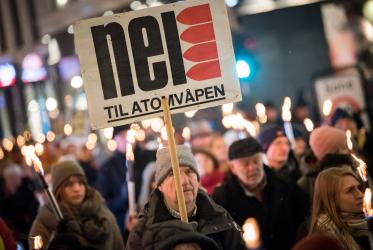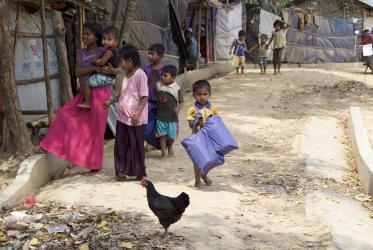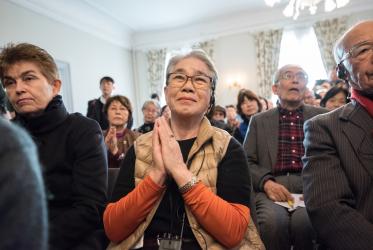Displaying 1 - 20 of 31
11 September 2023
WCC offers input to the UN New Agenda for Peace
13 April 2023
“From faith to action” conference will explore ways to protect children’s rights affected by migration
10 - 11 December 2020
Online
WCC stands behind “Statement on Faith in Action for Children”
26 November 2020
Trying to do good for the world
18 December 2017
Nobelpreisträger planen nächste Schritte zum Verbot von Atomwaffen
10 December 2017
Peacemaking “a great and compelling life task”
09 December 2017
Prayers for peace - Ecumenical service at Trinity Church, Oslo, Norway
09 December 2017
Trinity Church, Oslo, Norway
In Nigeria, WCC workshops focus on human rights
04 December 2017
We are called to work on a peace built on trust, not power
04 August 2017











